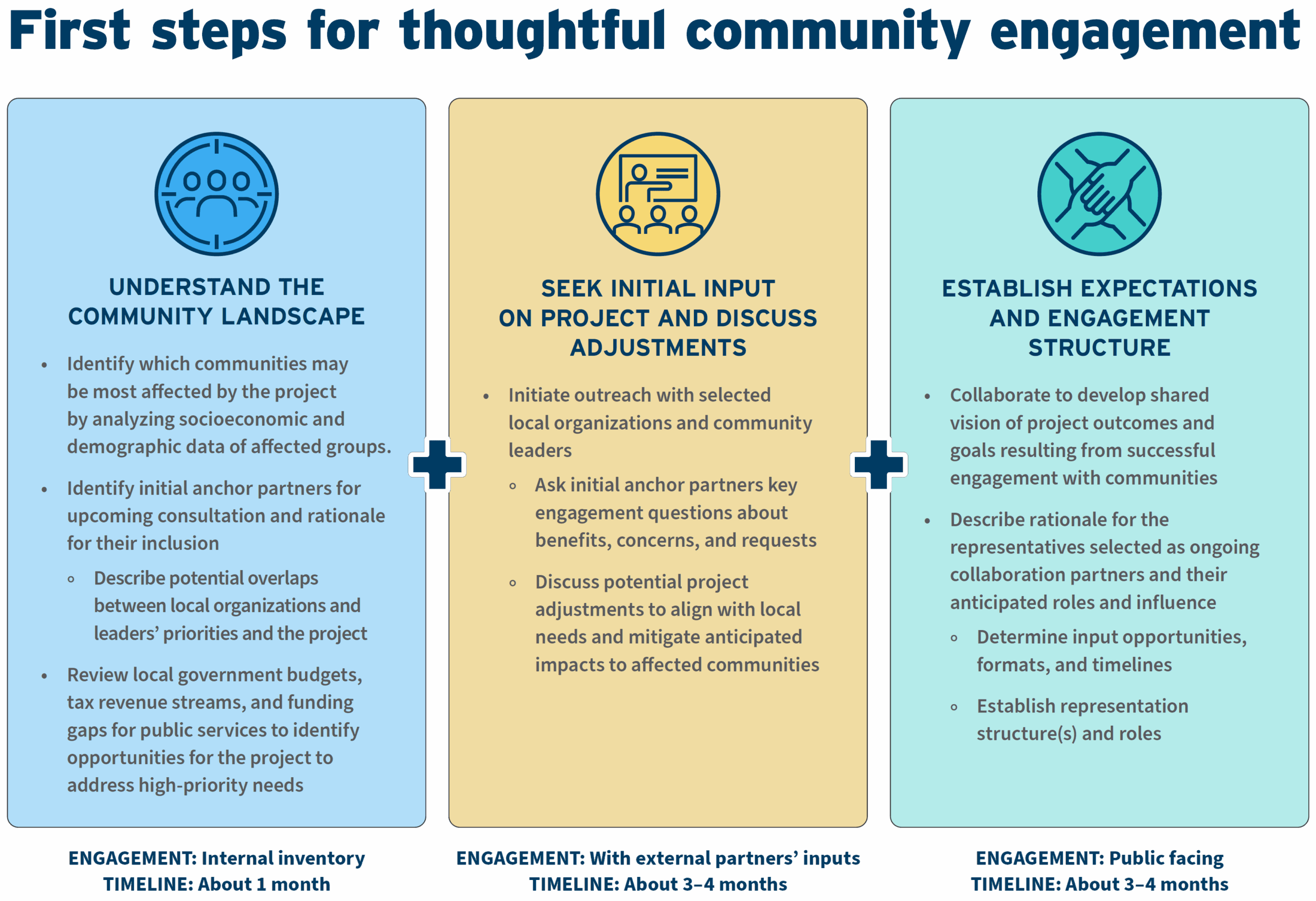With renewable energy projects facing uncertainty from a variety of directions, project developers can build crucial trust and support for their clean energy projects through thoughtful community outreach and initial engagement. Developers that don’t seize this opportunity risk facing significant local opposition that can delay or even cancel projects. Opposition to clean energy projects at the local, county, and state levels continues to increase and affect project success; accounting for the cancellation of 52 gigawatts of projects over the past 10 years, according to Heatmap Pro.
There’s a straightforward and realistic way to improve the odds of these projects.
RMI’s toolkit for initial engagement and collaboration with rural communities provides ready-to-use templates, step-by-step guidance, and the high-level strategy needed to build lasting, mutually beneficial community partnerships. We propose the best timing to start engagement in the project development process and walk through three main steps to prepare for and lead outreach and collaboration with rural communities.

Beginning strong community engagement at the right time is a key step to successfully developing clean energy infrastructure. By ensuring that their approach to community relationships is intentional and transparent, electric utilities and clean energy developers can position themselves to deliver more gigawatts of capacity and build better community partnerships at the same time.
This is just one of RMI’s resources for building strong community partnerships. Visit the Community Benefits Resource hub to find the full suite of reports and tools available from RMI’s Community Engagement and Benefits team.
